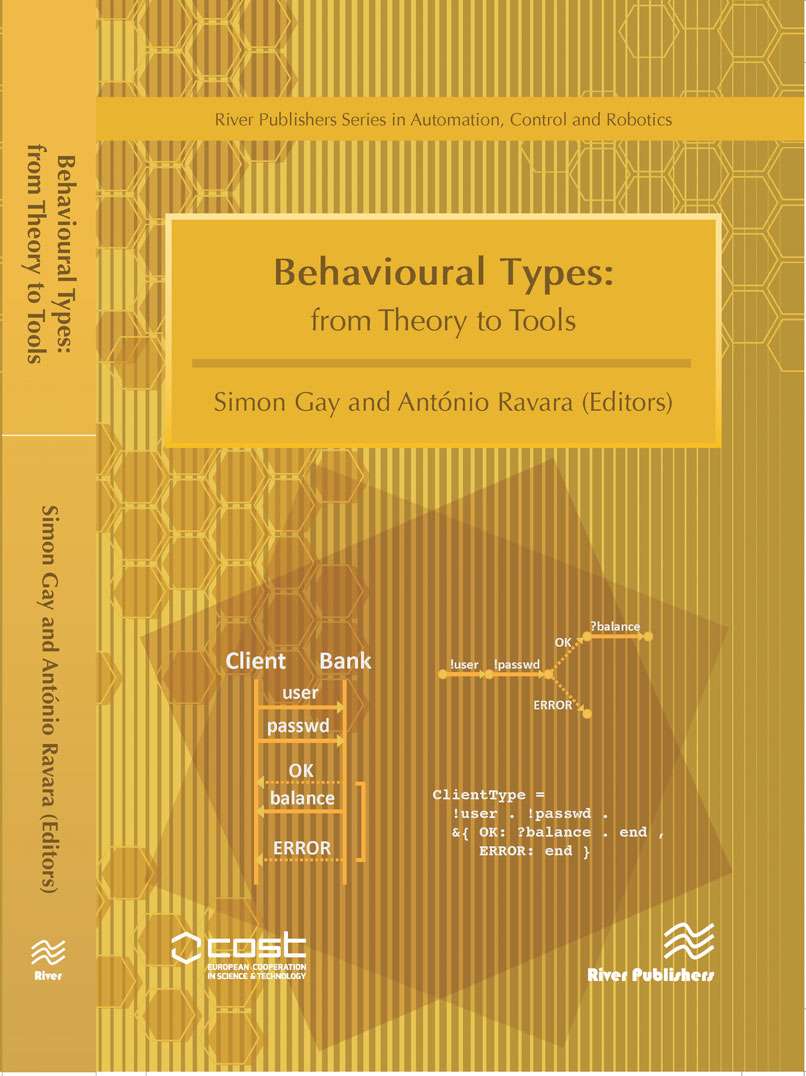River Publishers Series in Automation, Control and Robotics
Behavioural Types: from Theory to Tools
Editors:
Simon Gay, University of Glasgow, UK
António Ravara, Universidade Nova de Lisboa, Portugal
Authors:
Department of Computer Science, IT University of Copenhagen,
Rued Langgaards Vej 7, 2300 Copenhagen S, Denmark
ISBN: 9788793519824
Behavioural type systems in programming languages support the specification and verification of properties of programs beyond the traditional use of type systems to describe data processing. A major example of such a property is correctness of communication in concurrent and distributed systems, motivated by the importance of structured communication in modern software.
Behavioural Types: from Theory to Tools presents programming languages and software tools produced by members of COST Action IC1201: Behavioural Types for Reliable Large-Scale Software Systems, a European research network that was funded from October 2012 to October 2016. As a survey of the most recent developments in the application of behavioural type systems, it is a valuable reference for researchers in the field, as well as an introduction to the area for graduate students and software developers.
Behavioural Types: from Theory to Tools presents programming languages and software tools produced by members of COST Action IC1201: Behavioural Types for Reliable Large-Scale Software Systems, a European research network that was funded from October 2012 to October 2016. As a survey of the most recent developments in the application of behavioural type systems, it is a valuable reference for researchers in the field, as well as an introduction to the area for graduate students and software developers.
Programming languages; behavioural type systems; choreography; program analysis tools; session types; software contracts; automation
Chapter 5: The DCR Workbench: Declarative Choreographies for Collaborative Processes
by Søren Debois and Thomas T. Hildebrandt
